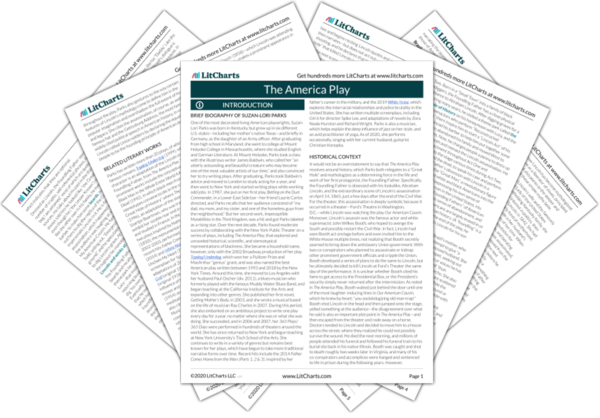By turning the Foundling Father into one of his “Wonders,” Brazil comments on the way history is memorialized: rather than being allowed to speak to and inspire the living, they are dressed up in costumes preserved as immobile images and gawked at. Indeed, this closing scene recalls the Foundling Father’s own line about “gawk[ing] at the Great Mans corpse” near the beginning of Act 1: now that the audience does the same to him, it is clear that—from the outside, at least—he has achieved the unity with Lincoln in the realm of “History” that he always wanted. But, to get here, he had to die and become nothing more than an immobile object that represents something else. Brazil’s final words also echo the Foundling Father’s eulogy for Lincoln during the second “echo” scene in this act, which at once establishes the Foundling Father’s unity with Lincoln and Brazil’s unity with his father. Ultimately, the Foundling Father never appears to get the “proper burial” that Brazil and Lucy sought out for him; instead, he is left outside of his coffin in a hole too big for his body. However, it is also possible that this “proper burial” truly has to do with Lucy and Brazil doing their part as family members (and as a mourner and a Confidence) to ensure that the Foundling Father does not truly die alone and unremembered. In this sense, perhaps it is more “proper” for the Foundling Father to remain in this replica Great Hole and represent Lincoln in death, as he did in life.
